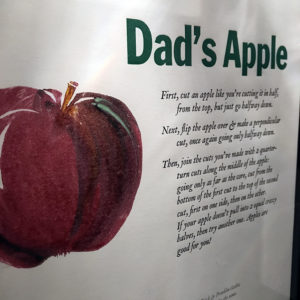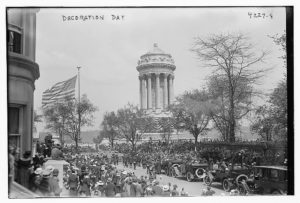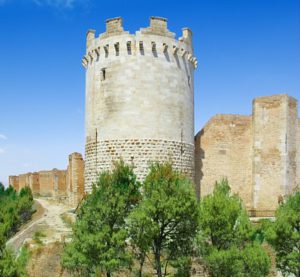
In 1997, I printed a broadside especially for my dad. It was his birthday, his 71st. Today, in fact, would have been his 91st. It is our first of Dad’s birthdays without him, but we have this thing in my family, by my prodding, I suppose. We celebrate birthdays, even of those who have passed. I’ve told you about it before; it’s a custom I read about in a book called Having Our Say: The Delany Sisters’ First 100 Years. I liked this idea of remembering and celebrating, and so sometimes we will do as the Delany Sisters did: celebrate birthdays of those who have come and gone by making their favorite meals, or sometimes it will be simple, like a favorite dessert, or sometimes we will simply raise our glasses in tribute. For Dad’s birthday today, we are going to lunch, as many of us as can gather together, at a restaurant he loved to go to, Cosa Duci, a little Italian place in Boca Raton where Silvia and Giovanna come up with a menu each day and what they make is what they bring you, if you order the special, at least. It always tastes like home and the folks there are always wonderful to us. I don’t know exactly how it will go, but the goal is to remember my father and to celebrate him and to bring a little joy of life to this day.
But back to 1997 and the broadside. It’s called “Dad’s Apple.” In it, I describe a dinner table trick that Dad loved to perform, a trick that his Uncle Jack taught him, probably when my dad was a kid. One portion of the text for the broadside was my first attempt at technical writing: not an easy task, let me tell you. In fact, at the end of my instructions, I provide the following disclaimer: If your apple doesn’t pull into 2 equal crazy halves, try another one. Apples are good for you!
So yes, after dinner sometimes, especially in the fall, Dad would pick up a knife in one hand and an apple in the other and he would make four cuts: one from the top, one from the bottom, then two along the middle of the apple. And then he would ask if you wanted to split an apple. He’d hold out the apple, offer it to you, and you’d grab it and pull it away and there in your hand would be this jigsaw puzzle piece of apple, one end going up, one end going sideways, that was, indeed, one half an apple. It is a pretty wonderful trick, the kind that makes kids go, “Whoa!” And that, my friends, is Dad’s Apple.
Last fall, on one of our haircut nights, Seth began as he always does, by tuning into the podcast of This American Life. No doubt the wooden bowl on the kitchen counter was filled with fresh apples as we listened to Episode No. 597: One Last Thing Before I Go. My haircut is always first, and during Act One of this episode, Seth cut my hair as Miki Meek told the story of man in Japan who installed a telephone booth in his garden. There’s a wooden shelf in the phone booth, and on the shelf, a phone, the old-fashioned kind, with a rotary dial. It’s connected to nothing, this phone, but the gardener placed it there so he could sit in the phone booth and talk to his cousin, who had recently died. It just seemed, to him, the natural thing to do. As the years passed, other people began using the gardener’s phone booth to speak to their dead friends and relatives, especially after the earthquake and tsunami that devastated the gardener’s town in 2011. The episode was full of conversations that folks who used the phone booth had had with those who have passed. They gave their permission to be recorded, and they typically start out quite rational, as if they are aware of the recording, talking about what’s new in their lives. Work, school, that kind of stuff. Almost always, though, they let down their guard. The conversations become more emotionally charged.
The haircut turned out just fine; it always does. But I was a blubbering mess through the whole thing. And this was months before I had experienced my own loss. Miki Meek, who led us through the story, gave a name to the gardener’s telephone: kaze no denwa, wind telephone. If the wind telephone was here, I would use it, because I am like that. I celebrate birthdays, like Dad’s birthday today, out of love and out of a wish to keep the channels open. I think Dad was doing the same a few days back when I found the Mother’s Day card that was the subject of the previous Convivio Book of Days chapter. We are all learning and wending our way through uncharted territory, and part of the process, I suppose––of keeping the circle unbroken in our book of days––is being receptive, being open, and learning to communicate in new ways, be it an old card that bubbles up out of a pile of junk, or an apple, or a meal, or a telephone that transmits its signal into the wind.
I printed an edition of 95 copies of Dad’s Apple, and gave Dad copy no. 1 for his 71st birthday. It’s in the family kitchen, framed, right above the cabinet where the napkins are kept. The broadside is printed from handset Van Dijck and Franklin Gothic types. I carved the illustration in linoleum and printed it as a monoprint, applying the inks in a painterly fashion with a brush onto the linoleum, so each one is different from all the others. The print hangs in the kitchens of many people I know. It would probably look great in your kitchen, too!


